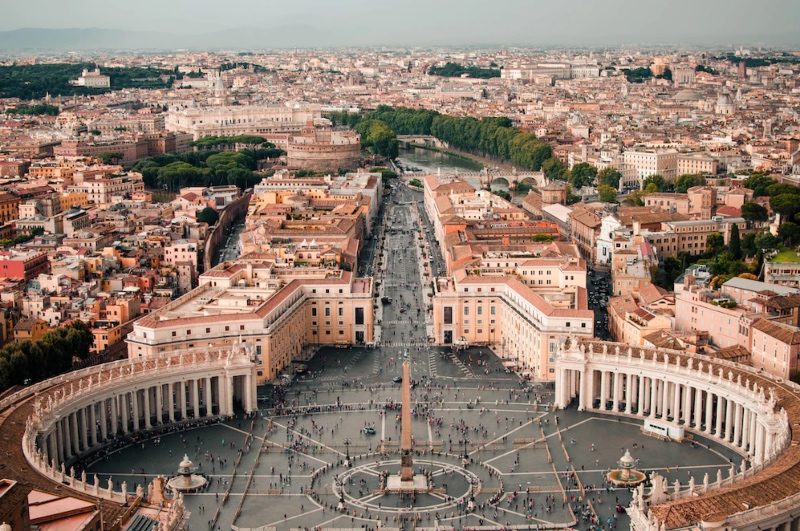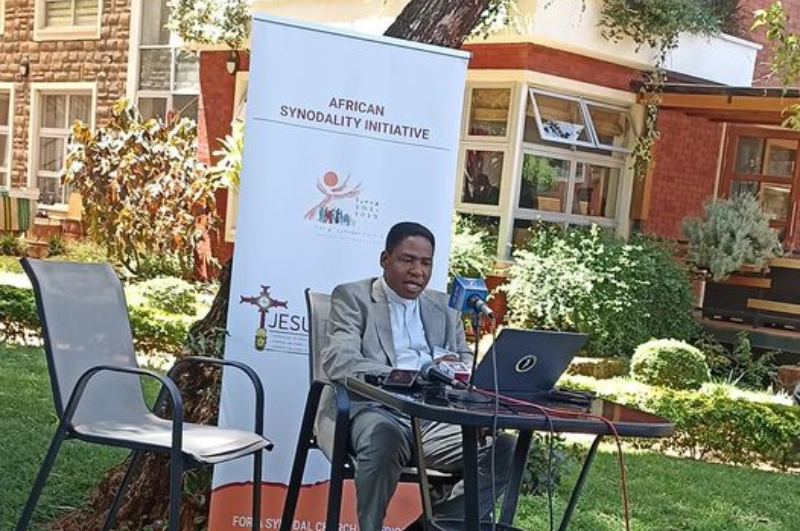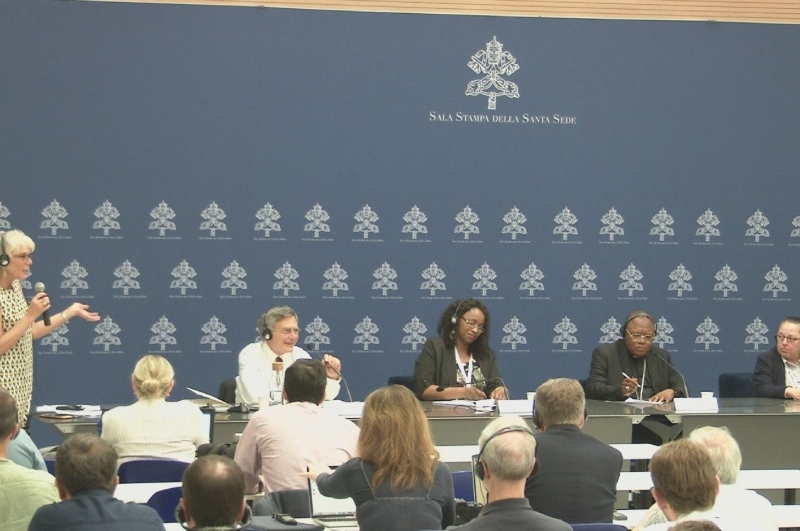



From today’s press briefing: The General Assembly is not a place for expressing personal opinions, but a place to listen, discern, and walk together toward the shore where the Lord is awaiting us.
Jesus, Church, family, synodality, listening, communion, poor, youth, community, love: These are just some of the most common words in the first days of work at the General Assembly of the Synod on Synodality, which has come to the end of its examination of the first section of the Instrumentum laboris. In these first days, Dr Paolo Ruffini – the president of the Commission for Information and prefect of the Dicastery for Communication – explained, participants expressed gratitude to the Pope for the beauty of this moment, in which they are experiencing the various faces of the Church.
Reports of the working groups
After the third general congregation held yesterday afternoon, the third session of the small working groups took place Saturday morning. The work consisted primarily in finalizing the reports of the work done in these working groups, each of which is composed of 10-12 people, including fraternal delegates – although the latter do not participate in the voting.
These reports, approved in each group by a large majority, were handed over to the General Secretariat of the Synod, which will subsequently return them to the larger assembly when the synthesis document is discussed.
Themes of the reports
Included among the themes that emerged in the reports were: formation at every level – of priests, in seminaries, in families; co-responsibility among all the baptized; and how the hierarchy can place itself within the communion.
Participants also asked to explore the term synodality from a lexical point of view in the various languages. The problem highlighted not only the need to curb bureaucratization of ecclesial structures, but also the importance of devoting energy to considering new forms and new places of participation in communion and in the Church's millennial history.
Young people and digital reality
The need to involve young people was also emphasized, with reports focusing, for example, on considering the modern digital reality, moving from the concept of power to that of service, and avoiding any form of clericalism.There were also questions about the role of laity and women within the ecclesial communion and how the Church can place itself at the service of the poor and migrants. The synod proceedings also focused on the relationship between the Church’s two “lungs”, the lungs of the East and the lungs of the West.
Pope Francis, the shepherd leading the synod
The Pope, Dr Ruffini reported, was also present at yesterday afternoon's general congregation and was generally among the first to arrive in the hall. Dr Ruffini noted that the Pope had expressed particular gratitude for the way media professionals have been explaining the events in the Vatican.Cardinal Fridolin Ambongo Besungu, president of the Symposium of the Episcopal Conferences of Africa and Madagascar (Secam); Sister Leticia Salazar, ODN, a witness to the entire synod process from the Diocese of San Bernardino in the United States; and as usual, Sheila Leocádia Pires, secretary of the Synod's Information Commission, also spoke at Saturday’s press briefing.
In search of God's will for the Church today
Cardinal Besungu, noting that this was his fourth synod experience, noted how this Synod Assembly has differed from previous ones: “On this occasion, great importance is given to the search for God’s will in the present historical moment in the life of the Church. No one has come with an agenda to impose. We are brothers and sisters listening to God's will for His Church and what will come out of this Synod will bear good fruit and be accepted as God's will… It is necessary to place ourselves in listening to the Spirit: the goal of this journey until 2024 is to seek the best answers to certain problems; and the result, thanks to prayer and confrontation, will be ‘something close to what we can consider to be the will of God’.”
PrayerIndeed, there is no synodality without prayer, the Cardinal continued. “As a Church, we are always in discernment and there is no endpoint.”
Later, the president of SECAM, in response to a question from reporters, explained that the reports of the working groups will not be published in order to respect the “dynamic of synodality”: “There will be a synthesis of all the reports. To consider only one would mean going out of synodality.”
J“It is not the synod secretariat that decides or does the synod,” he pointed out: there is an interaction between the working groups and the General Secretariat. Moreover, the authority of individual participants is not given by pontifical appointment, but by baptism. In this regard, Dr Ruffini recalled that the appointed members number 52 out of 364 total members.
A new way of dealing with problems
Asked about so-called “LGBT issues” that have arisen at the synod and how these might be received by the African bishops, Cardinal Besungu pointed out, “We are here for a synod on synodality. I would not like to go off the topic. Synodality does not mean expressing personal opinions, but walking together toward the shore where the Lord is waiting for us. On the LGBT issue, the Lord Himself through collective discernment will show us the direction.”
In addition, the President of SECAM urged people to scale back exaggerated expectations from this Synod, which is aimed particularly at finding a new way of acting and dealing with problems on the part of the Church.
Not a concept, but an experience
"Synodality is not a concept. It’s an experience of being listened, or being included”, Sr. Leticia Salazar said, expressing deep gratitude for the opportunity to participate in an event in which the whole universal Church is involved.
She then dwelt on the theme of migration in the synod discernment. “I immigrated to the United States when I was 17 years old, with my family. And as you arrive to a new country, faith sustains you, but the Church welcomes you. And I think that’s exactly what happened to me and to my family, in the United States, and in California”.
Events outside the Synod Hall
Sheila Leocádia Pires also connected to the theme, recalling that migration has an impact on family structure and is a very broad topic that also embraces other issues, such as climate change, conflicts, wars, etc.
The secretary of the Synod's Commission for Information then recalled events related to the ongoing work of participants.
Next Thursday all participants are invited to a pilgrimage to the Catacombs of St. Domitilla and St. Sebastian. In the Vatican Basilica, prayer events such as the rosary are also planned. There is the opportunity to adore Christ in the Blessed Eucharist, and the Vatican Gardens are also open to participants.
Prayer also plays a fundamental role in the Aula: in fact, between the interventions there are always moments of prayer and silence to deepen and reflect on what has been heard.
The process starts again on Monday
Synod participants do not have any scheduled work on Saturday afternoon or on Sunday. They will be back in the hall on Monday morning immediately after Mass in St. Peter's Basilica for the fourth general congregation. The Congregation, which will be streamed, will address the next point of the Instrumentum laboris, focused on the theme: “A communion that radiates. How can we be more fully a sign and instrument of union with God and of the unity of all humanity?” Afterward, the election of the members of the Synthesis Report Commission and the Information Commission will take place.
Source: Vatican News
Related Articles
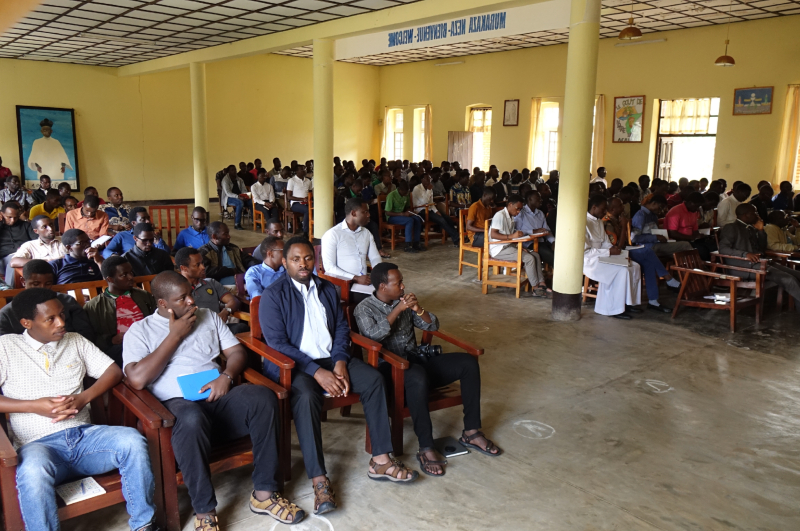
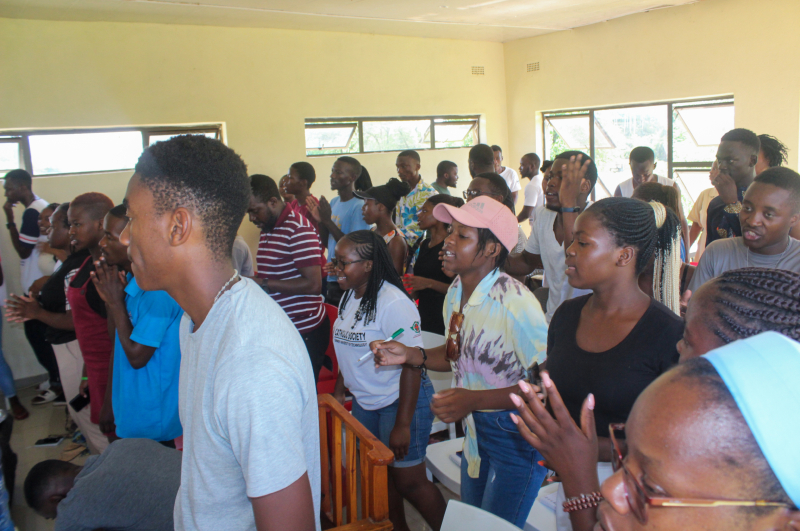
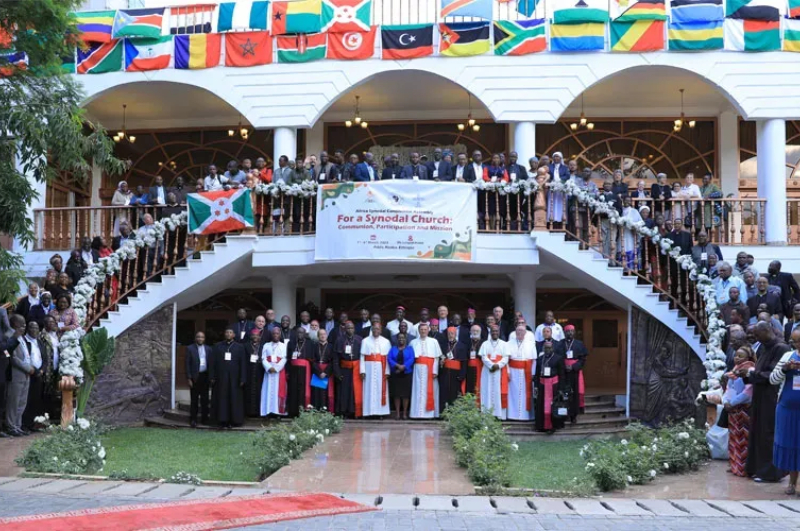
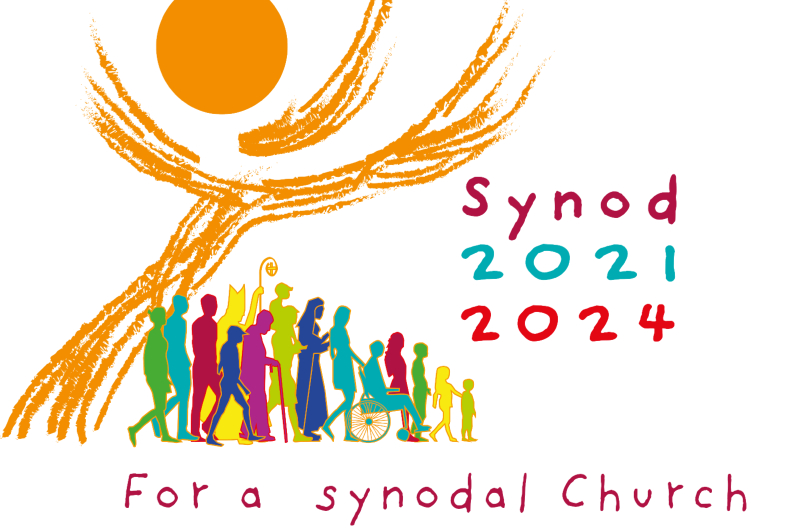
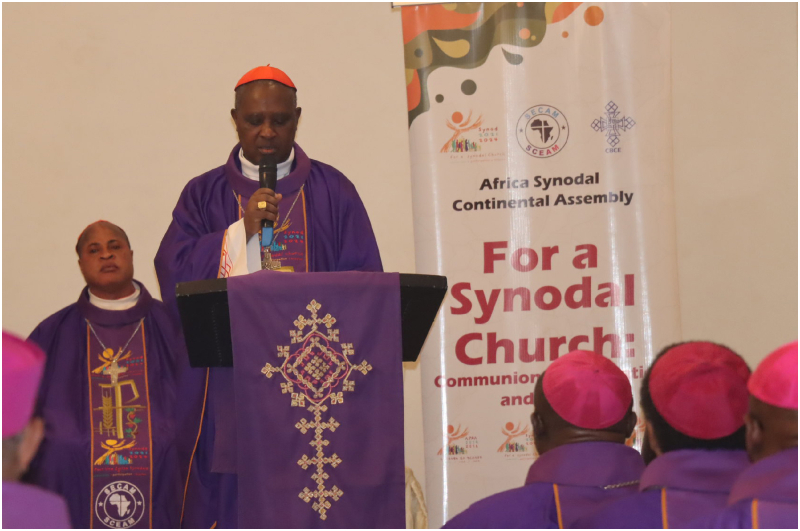
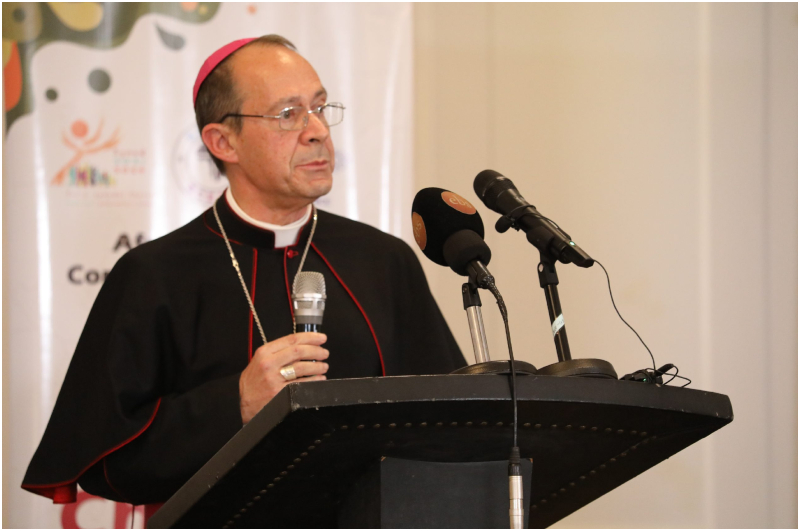
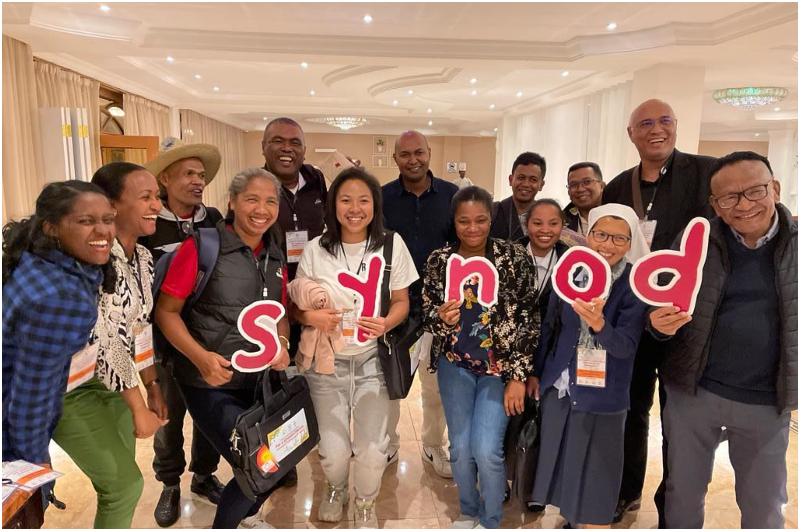
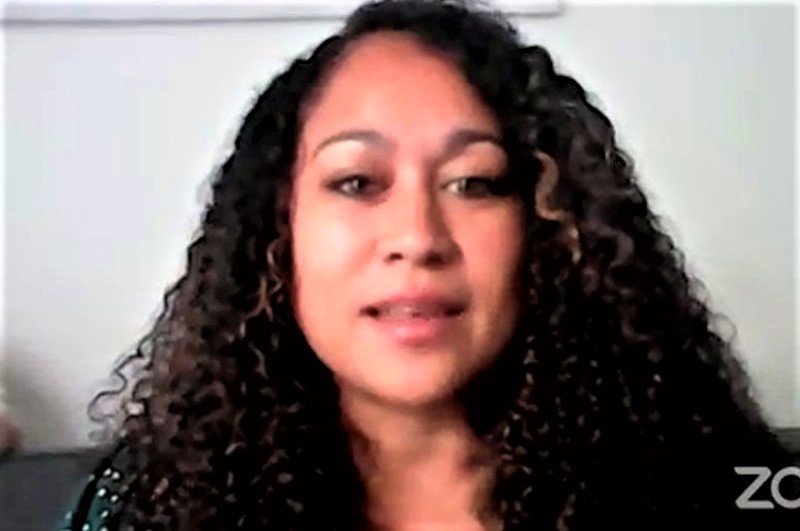
Select Payment Method
Pay by bank transfer
If you wish to make a donation by direct bank transfer please contact Fr Paul Hamill SJ treasurer@jesuits.africa. Fr Paul will get in touch with you about the best method of transfer for you and share account details with you. Donations can be one-off gifts or of any frequency; for example, you might wish to become a regular monthly donor of small amounts; that sort of reliable income can allow for very welcome forward planning in the development of the Society’s works in Africa and Madagascar.
Often it is easier to send a donation to an office within your own country and Fr Paul can advise on how that might be done. In some countries this kind of giving can also be recognised for tax relief and the necessary receipts will be issued.


